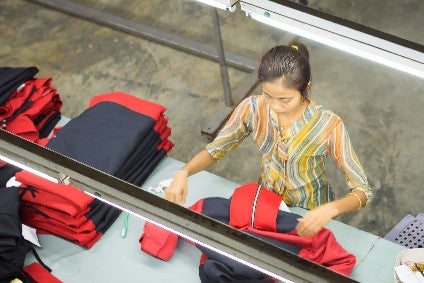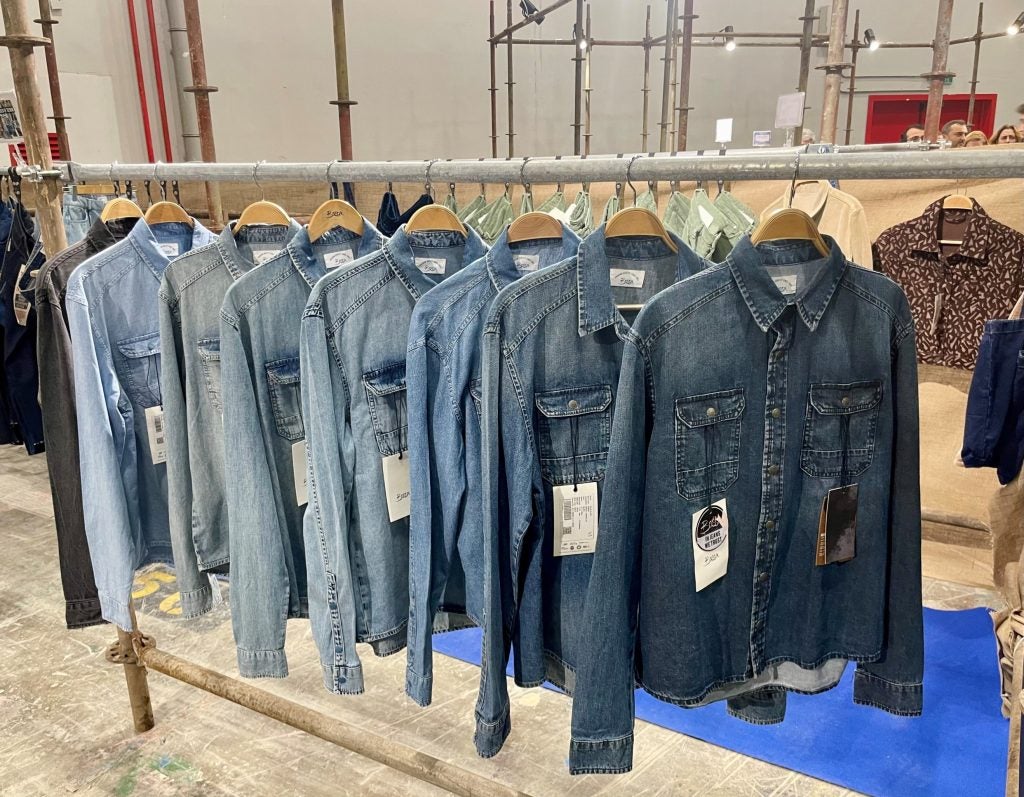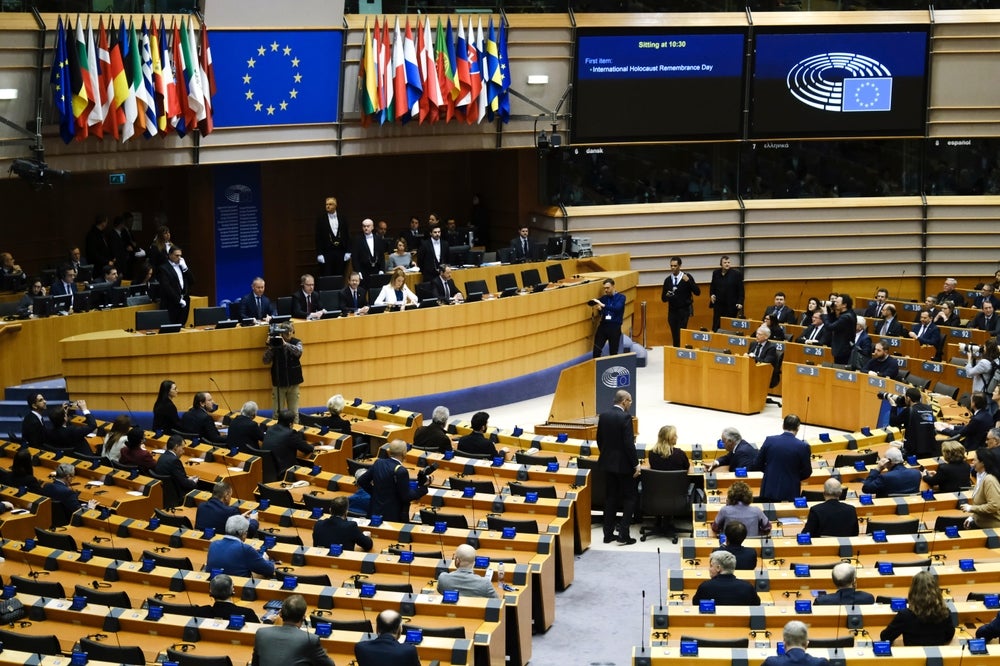
The ongoing human rights crisis in Myanmar has prompted the Ethical Trading Initiative (ETI) to launch a four-point guide aimed at helping brands and retailers to continue to source responsibly from the country.
The European Union (EU) imported around $1.81bn worth of garments from Myanmar in 2017, accounting for more than half of the country’s ready-made garment exports.
But in October last year, the European Commission said it was considering steps to remove Myanmar’s duty-free Everything But Arms preferential trade access over the alleged ethnic cleansing of Rohingya refugees during a 2017 military campaign – a move that creates political uncertainty and potential risks and reputational issues for firms sourcing garments from Myanmar, and could leave thousands of local workers jobless.
The ETI says that as a matter of principle, international companies should not undertake operations in a country where there is a clear record of severe, sustained and abusive rights violations. But it also acknowledges global businesses have an opportunity to play a positive and constructive role by promoting an inclusive, pluralistic, democratic Myanmar in which human rights are respected, protected and fulfilled.
“Companies should set out a clear, principled and public position on their corporate strategy and approach to human rights in Myanmar. These strategies should be open to scrutiny by external stakeholders,” the ETI says. “It is not sufficient to claim to have done the necessary supply chain mapping and due diligence internally, but not publicly communicate this. Businesses should also be open to, and ready to respond to, queries about their corporate approach to managing human rights risks in Myanmar given the seriousness of the context.
See Also:
“In addition, companies should seek to build relationships and engage with local stakeholders, as well as other Myanmar-based institutions which can provide information and support on human rights due diligence, and insights into the links between the military, government and private sector. Institutions such as the Myanmar Centre for Responsible Business and SMART Myanmar [an EU-funded garment sector project] provide support on social responsibility. Local trade unions and human rights NGOs may be able to assist companies in identifying risks in their supply chains. Development partners and diplomatic missions may also be able to provide information on the military, government agencies and their connections with the private sector in different industries.”
How well do you really know your competitors?
Access the most comprehensive Company Profiles on the market, powered by GlobalData. Save hours of research. Gain competitive edge.

Thank you!
Your download email will arrive shortly
Not ready to buy yet? Download a free sample
We are confident about the unique quality of our Company Profiles. However, we want you to make the most beneficial decision for your business, so we offer a free sample that you can download by submitting the below form
By GlobalDataThe ETI has outlined four ways brands and retailers can continue to conduct business responsibly in Myanmar, which are set out in its roadmap ‘Responding to the Human Rights Crisis in Myanmar: Guidance for Responsible Businesses‘.
1: Assess the extent to which actions – both in connection to core business and beyond – empower the military, government and civil society.
Brands should map their supply chains and seek to identify any connections with businesses linked to the military, its leaders or to others responsible for serious human rights violations. This requires detailed financial and human rights due diligence to explore ownership of companies in supply chains and the land on which factories may be located. Brands should cut ties to businesses linked to the military and those responsible for serious rights violations. This due diligence should encompass the assessment of joint enterprise structures and business relationships, as well as corruption and bribery, which can undermine the rule of law as well as civil society groups by diminishing their role in democratic processes.
Brands sourcing from Myanmar should support suppliers in conducting their own human rights due diligence, with a clear focus on identifying links between the military and the private sector further down the supply chain. Brands should work with suppliers in this endeavour and engage with local stakeholders who possess relevant knowledge and expertise. When selecting new suppliers or business partners, this requirement for due diligence and divesting from businesses linked to the military should be clearly communicated.
2: Do not legitimise the undermining of human rights by appearing complacent in the face of ongoing violations.
Brands must mitigate against any legitimacy they might lend to oppressive government agencies by being transparent throughout their operations. This entails three specific actions:
- Disassociate from operations linked to the Myanmar military, its leaders or to others in government responsible for serious human rights violations. A brand may be indirectly connected to the military or government through its sourcing strategy, and therefore a transparent policy is needed, acknowledging the state’s recent human rights record. This does not necessarily require direct condemnation of the regime (which could put business operations and workers in a difficult position). Instead, recognise that the UN, EU and US have found a consistent pattern of ethnic cleansing/widespread rights abuses, and show that particular care is being taken to ensure that your operations comply with human rights standards, the findings of the UN-backed Fact-Finding Mission, and the general welfare of the population. Due to the lack of information on the connections between the government, military and private sector, brands should collaborate and share information on supply chains, on any specific links discovered, and on where decisions are taken to dissociate from certain businesses or supply chain partners.
- Acknowledge more direct connections to rights violations occurring, i.e. the continued lack of freedom of association. Set out your brand’s procedures for preventing and mitigating any adverse impacts stemming from operations or relationships in light of the current context.
- Ensure transparency around brand presence and strategy in the country. Publish a corporate strategy for Myanmar, setting out the decision to remain and engage, as well as a commitment to taking responsibility for workers in the supply chain, to providing ‘decent work’ as set out by the ILO and to being a positive force in society.
- Detail the extent of the due diligence conducted, and detail wider ethical trade work designed to mitigate harm and support workers’ rights. Publish information on your supply chain such as factory lists.
3: Ensure workers have access to effective grievance mechanisms and that remedy is provided where harm has occurred.
In the context where protection of rights by the state is limited, impunity is rife and freedom of association severely curtailed, brands should ensure that workers have access to independent and genuinely effective grievance mechanisms, that these mechanisms are well-resourced, supported and monitored, and that appropriate remedy is provided where harm has occurred.
4: Engage collectively with the Myanmar government, national trade associations and other relevant parties to underline that increased investment and a continued presence in Myanmar is dependent on an enabling environment and the rule of law.
Brands should make it clear to the government that an enabling environment is not currently in place, and that this undermines their sourcing strategy, which is reliant on the government’s ability to effectively protect the human rights of its citizens. Engagement on this issue and the use of collective leverage is critical. While public or private engagement or advocacy should be determined on a case-by-case basis, brands should also be clear that specific time-bound changes are needed to ensure the right environment for responsible businesses to succeed, and that failure to improve could result in withdrawal.
Engagement with the EU and US on making their trade preference schemes (Generalised Scheme/System of Preferences (GSP)) work is likewise critical – which means doing everything feasible to ensure that the labour and human rights conventions contained in GSP agreements are implemented. Furthermore, brands should:
- Actively support trade unions and civil society groups in promoting freedom of association and freedom of expression; and engage with the ILO and other inter-governmental and multilateral agencies to ensure government and business approaches on the implementation of labour and human rights standards are aligned and consistent.
- Promote diversity, inclusiveness, gender empowerment and equality, and engage with and support local civil society groups involved in this work.
- Foster inclusive development and social harmony beyond just providing employment.







